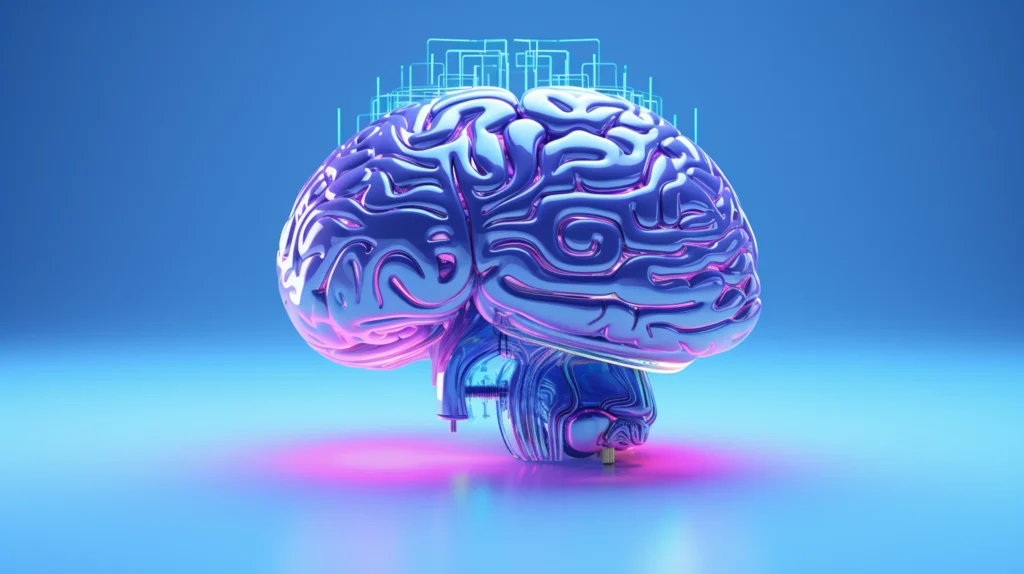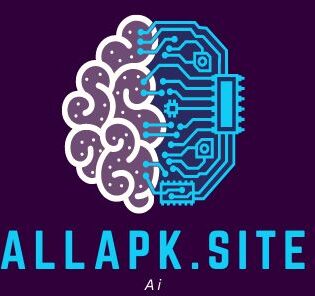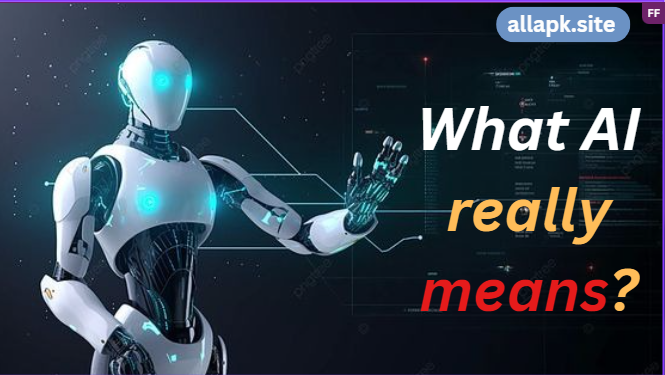What simulated intelligence Truly Means: Figuring out Man-made consciousness
What AI really means. Man-made reasoning (simulated intelligence) is a term that has become universal in the present tech-driven world. From self-driving vehicles to remote helpers like Siri and Alexa, man-made intelligence is upsetting the way that we live and work. Yet, what does man-made intelligence truly mean? In this article, we’ll investigate the major ideas of simulated intelligence, its various kinds, applications, and the effect it has on different ventures.
What is Man-made consciousness?
Man-made consciousness (computer based intelligence) alludes to the reenactment of human knowledge in machines that are intended to think, learn, and take care of issues independently. Not at all like conventional programming, which adheres to unequivocal directions, simulated intelligence frameworks can work over the long haul by gaining information and adjusting to new circumstances.
Key Parts of computer-based intelligence
Computer-based intelligence is based on a few key parts that empower machines to emulate human knowledge:
AI (ML): A subset of man-made intelligence, ML includes preparing calculations on enormous datasets so they can settle on expectations or choices without being expressly modified for explicit errands. It’s the foundation of numerous simulated intelligence applications, from proposal motors to misrepresentation recognition.
Regular Language Handling (NLP): NLP permits machines to comprehend and deal with human language, empowering applications like chatbots, interpretation administrations, and voice-enacted collaborators.
PC Vision: This part empowers machines to decipher and pursue choices in light of visual information, for example, perceiving objects in pictures or recordings.
Mechanical technology: computer-based intelligence is utilized in mechanical technology to empower machines to perform undertakings independently, like assembling cycles or even complex medical procedures.

Profound Learning: A further developed type of AI, profound learning utilizes brain networks with many layers to examine information and decide. It’s especially viable for undertakings like picture and discourse acknowledgment.
Kinds of artificial intelligence
Simulated intelligence can be ordered into various sorts given its abilities:
Limited computer-based intelligence (Frail simulated intelligence): Thin simulated intelligence alludes to computer-based intelligence frameworks that are intended to play out a particular undertaking, like voice acknowledgment or picture examination. These frameworks are profoundly particular and can’t perform errands outside their assigned capability.
General man-made (Areas of strength for intelligence): General man-made intelligence is a hypothetical type of man-made intelligence that can play out any savvy task that a human would be able. It would have summed up human mental capacities, yet at this point, it stays an idea as opposed to a reality.
Counterfeit Genius (ASI): ASI alludes to a simulated intelligence that outperforms human knowledge in all perspectives. It’s a speculative situation frequently examined in sci-fi and brings up moral and philosophical issues about the fate of artificial intelligence.
Normal Uses of Simulated Intelligence
Artificial intelligence is implanted in different parts of our regular routines and enterprises:
Medical services: artificial intelligence is utilized for diagnosing sicknesses, customizing therapy plans, and, surprisingly, in mechanical medical procedures. AI calculations can investigate clinical information quickly and more precisely than people.
Finance: artificial intelligence helps in extortion discovery, risk the executives, and exchanging techniques. Calculations can investigate market patterns and pursue ongoing choices, possibly prompting better monetary results.
Retail: man-made intelligence powers proposal motors, customized promoting, and stock administration. It upgrades client experience by giving customized item ideas and further developing store network effectiveness.
Transportation: Independent vehicles, course streamlining, and traffic the executives are regions where artificial intelligence is taking huge steps. Self-driving vehicles are one of the most conspicuous instances of simulated intelligence in transportation.
Amusement: artificial intelligence is utilized in satisfied proposals, computer game turn of events, and in any event, making music and craftsmanship. Web-based features like Netflix and Spotify use simulated intelligence to propose content given client inclinations.
Client care: simulated intelligence-driven chatbots and menial helpers handle client requests, process exchanges, and offer help nonstop, further developing effectiveness and consumer loyalty.
The Moral Ramifications of Computer-based Intelligence
As man-made intelligence keeps on developing, it carries with it a large group of moral contemplations:
Protection Concerns: simulated intelligence frameworks frequently depend on tremendous measures of information, raising worries about how individual data is gathered, put away, and utilized.
Predisposition and Reasonableness: simulated intelligence calculations can propagate inclinations present in the information they are prepared on, prompting uncalled-for results in regions like employing, policing, and loaning.
Work Relocation: The computerization of errands through simulated intelligence could prompt employment misfortunes in specific areas, provoking conversations about the eventual fate of work and the requirement for new abilities.
Security Dangers: man-made intelligence can be utilized in network protection to recognize dangers, however, it can likewise be weaponized for malignant purposes, for example, deepfakes or mechanized assaults.

Straightforwardness and Responsibility: As computer-based intelligence frameworks go with additional choices that affect individuals’ lives, there is a developing requirement for straightforwardness in how these choices are made and who is responsible when things turn out badly.
The Fate of man-made intelligence
Man-made intelligence is quickly progressing, and its future holds monstrous potential. The following are a couple of patterns to watch:
Human-simulated intelligence Coordinated effort: The future might see more cooperation among people and artificial intelligence, with machines taking care of routine errands while people center around more perplexing critical thinking and inventiveness.
Reasonable computer-based intelligence: As man-made intelligence frameworks become more modern, there will be a more noteworthy accentuation on settling on artificial intelligence choices straightforward and justifiable to guarantee trust and responsibility.
Simulated intelligence in Regular day-to-day existence: computer-based intelligence is probably going to turn out to be considerably more coordinated in day-to-day existence, from savvy homes to customized medical services, making our associations with innovation more consistent and natural.
Guideline and Administration: States and associations should lay out rules and guidelines to deal with the moral and cultural effects of man-made intelligence.
End
Computerized reasoning is something beyond a popular expression; a groundbreaking innovation is reshaping ventures, working on our regular routines, and testing our moral limits. Understanding what computer based intelligence truly implies is significant for exploring this quickly evolving scene. Whether you’re a business chief, a tech fan, or just interested in the future, staying aware of computer-based intelligence’s improvements will assist you with remaining ahead in this simulated intelligence-driven world.
FAQs
Q1: Is man-made intelligence equivalent to AI?
No, AI is a subset of man-made intelligence. Man-made intelligence envelops a more extensive scope of innovations, including AI, regular language handling, and mechanical technology.
Q2: Might simulated intelligence at any point supplant human positions?
Artificial intelligence might robotize certain undertakings, prompting position dislodging in certain areas. In any case, it likewise sets out new open doors and jobs that require human abilities.
Q3: How could organizations profit from simulated intelligence?
Organizations can utilize computer based intelligence to further develop productivity, improve client encounters, and advance items. Artificial intelligence can assist including robotizing routine errands to giving information-driven bits of knowledge.
Q4: What are the dangers related to computer based intelligence?
Chances incorporate protection concerns, predisposition in navigation, work relocation, and security dangers. It’s critical to address these dangers through moral simulated intelligence practices and guidelines.
By figuring out the genuine importance of man-made intelligence, its applications, and its suggestions, you can all the more likely value the innovation’s true capacity and explore its difficulties.
FAQs: What man-made intelligence Truly Means
Q1: What is Man-made brainpower (computer based intelligence)?
A: Man-made reasoning (artificial intelligence) is a field of software engineering that spotlights making machines and frameworks fit for performing errands that regularly require human knowledge. This incorporates assignments like critical thinking, independent direction, language understanding, and gaining as a matter of fact.
Q2: How does simulated intelligence contrast with AI?
A: AI (ML) is a subset of computer based intelligence. While artificial intelligence alludes to the more extensive idea of machines emulating human knowledge, ML explicitly includes making calculations that permit machines to gain from information and work on their presentation after some time without being unequivocally modified for explicit undertakings.
Q3: What are the principal sorts of computer based intelligence?
A: The principal sorts of man-made intelligence are:
Tight man-made intelligence (Powerless artificial intelligence): man-made intelligence intended for explicit assignments, similar to voice acknowledgment or picture characterization.
General simulated (Serious areas of strength for intelligence): A hypothetical type of artificial intelligence with the capacity to play out any intelligent errand that a human would be able.
Counterfeit Genius (ASI): A theoretical artificial intelligence that outperforms human knowledge in all perspectives.
Q4: What are a few normal utilizations of simulated intelligence?
A: simulated intelligence is utilized in different applications, including:
Medical services: For diagnosing infections, customizing therapy plans, and mechanical medical procedures.
Finance: For extortion discovery, risk the executives, and algorithmic exchanging.
Retail: In suggestion motors, customized promoting, and stock administration.
Transportation: In independent vehicles and traffic the board.
Client care: Through computer-based intelligence-driven chatbots and remote helpers.
Q5: Is computer based intelligence going to supplant human positions?
Sometimes man-made intelligence might computerize specific undertakings, prompting position dislodging in certain areas, it additionally sets out new open doors and jobs that require human abilities. The key is adjusting to the progressions and securing new abilities that supplement computer based intelligence innovations.
Q6: What are the moral worries encompassing artificial intelligence?
A: Moral worries connected with man-made intelligence include:
Protection: The utilization of enormous datasets brings up issues about how individual information is gathered and utilized.
Predisposition: man-made intelligence calculations can propagate inclinations present in their preparation information, prompting unjustifiable results.
Work Dislodging: The mechanization of errands could prompt joblessness in specific businesses.
Security: man-made intelligence can be utilized for malignant purposes, for example, deepfakes or computerized cyberattacks.
Straightforwardness: The requirement for straightforwardness in artificial intelligence navigation and responsibility when things turn out badly.
Q7: Might computer based intelligence at any point learn and adjust all alone?
A: Indeed, certain simulated intelligence frameworks, especially those utilizing

